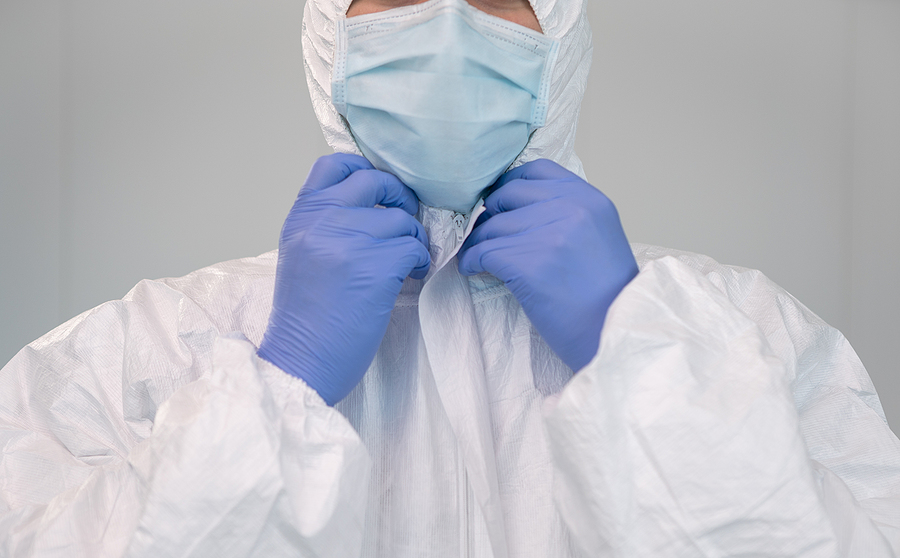Today, as the world is fighting against the pandemic called the Covid-19, the use of face masks has become necessary and universal. Though a face mask can protect the user from SARS-CoV-2 infection, it poses specific adverse effects too; one of them is on the wearer's oral health known as 'mask mouth.' Mask mouth is often associated with symptoms like caries, gingivitis, halitosis, candidiasis, and angular cheilitis.
After the threat of Covid-19 infection has started ruling the world, dentists have started noticing an increase in patients with complaints of halitosis, gingivitis, ulcers, and caries. And it was found, all these symptoms are being linked to the excessive and improper use of a mask.
Mask mouth can be caused by covering the mouth for more extended periods, leading to the mouth's dryness. While wearing masks, there is an increased incidence of mouth breathing that causes surface dehydration and reduced salivary flow rate (SFR). If the salivary function, which is a natural protection to wash away bacteria and keep the mouth pH at an optimal level is reduced, this creates a perfect environment for plaque and bacteria, and the risk of developing caries, gingivitis, halitosis, and candidiasis increases.
What Is Mask Mouth?
Mask mouth is an oral hygiene disorder caused by wearing a face mask for long periods.
The symptoms associated with 'mask mouth' include:
- Tooth decay and cavities
- Halitosis (bad breath)
- Gum inflammation
What Causes Mask Mouth and Cavities?
Mouth Breathing:As we know, we are meant to breathe in and out through the nose. However, wearing a mask for a long period of time can cause people to switch to breathing through the mouth. This can lead to mouth dryness, thus decreasing saliva production that contains the enzymes, proteins, and minerals needed to fight against disease-causing bacteria, prevent plaque build-up, and keep the mouth clean.
Dehydration: Dehydration can occur if you do not eat or drink the required quantity of food and water. People who wear PPE all day long and are in professions surrounded by too many people tend to eat or drink less as they don't want to remove their mask to eat or drink. Dehydration can cause dry mouth and, in turn, bad breath and cavities.
How to Treat & Prevent Mask Mouth
In today's tough times, the benefits of wearing masks exceed the adverse effects. And, the adverse effects can be easily prevented by following certain habits:
- Stay hydrated: Always stay hydrated; replace acidic sodas, iced teas, and sports drinks with higher pH water. Never allow yourself to be dehydrated.
- Oral hygiene practices: Follow proper oral hygiene practices - brush your teeth carefully at least two times a day with fluoridated toothpaste. Flossing once a day is also recommended.
- Clean your tongue properly:Use a tongue-cleanser morning and night along with a mouth rinse formulated to treat halitosis to remove bacteria from the tongue.
- Dental checkups and procedures: Visit your dentist for professional cleanings to prevent plaque and tartar accumulation that causes bad breath and cavities.
- Mask etiquette: Mask etiquettes like using the proper technique to wear a mask, wearing a clean mask, avoiding mouth breathing while wearing a mask should be followed.
- Use of mouthwashes: Using chlorhexidine mouthwash at least once a day is highly effective for preventing caries and plaque formation.
If left untreated, the mask mouth can be harmful; gum disease or periodontal disease will eventually lead to strokes and heart attacks. While masks are not avoidable during the present times, follow the dental care practices and take care of your oral health well to avoid their grossest side effects.
Share On

Reclaim Your Confidence: The Comprehensive Guide to Smile Makeovers
Are you ready to transform your smile and reclaim your confidence? A smile makeover could be just what …

Transform Your Smile with These 3 Common Cosmetic Dentistry Procedures
Welcome to our blog, where we explore the world of cosmetic dentistry and how it can transform your …

Why Dental Checkups are Important Post-Holidays
The holiday season is a time of joy, celebration, and indulgence. We gather with loved ones, exchange gifts, …

Do You Need a Root Canal? 5 Telltale Symptoms
Are you experiencing persistent tooth pain or sensitivity? Do you have a nagging feeling that something might be …

Top Five Reasons Why A Tooth Extraction Is Necessary
Welcome to our blog post, where we'll explore the top five reasons why a tooth extraction may be …

